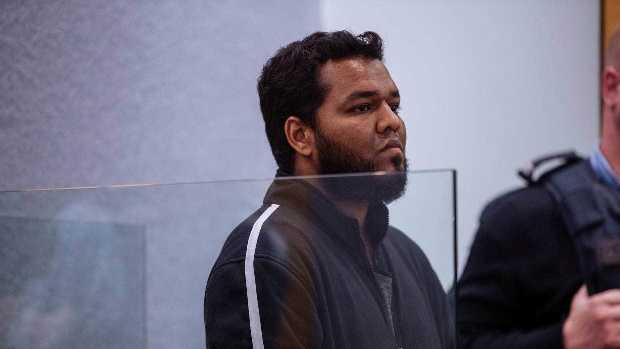Upholding the rights of the worst amongst us protects the rights of us all
By Damien Grant
It is hard to look for good news in a tragedy. Our souls turn to vengeance and grief, and in the aftermath of the Lynn Mall terror attack, there has been no shortage of both.
Yet, it is not in victory and celebration that we measure the worth of a nation, but in its times of challenge and strife. I fear how Aotearoa is going to handle the remaining challenges of this pandemic, but I see reason for optimism in how our institutions coped with the events leading up to the Auckland attack.
Let’s consider the genesis of this tale. A young man washed up onto our shores as a student in 2011. He subsequently claimed he faced persecution if he returned to his native Sri Lanka. In 2012 Immigration New Zealand rejected this claim, but a year later it was accepted on appeal.
It is difficult to read the Tribunal’s decision and retain confidence that this is a credible decision-making body. The willingness to accept the outlandish claims being made is startling. However, it is easy to say this knowing what we now know.
My point is that even though the decision was wrong, it was made for the right reasons. Our immigration authorities might appear to be incompetent, but they are neither bad, nor corrupt nor venal. Perhaps that is a low bar, but the fault here ultimately lies with the applicant who lied, rather well as it happens, to get permission to enter New Zealand.
Our latent terrorist, sadly, did not adjust to life in his new homeland. He became fixated with Jihad and came to the attention of the security forces. By 2017 it had become clear that this refugee was becoming a threat and he found himself in custody, awaiting a number of charges.
The details don’t matter as much as the fact that, even though this was clearly a vile and reprehensible individual, the institutions held. No rules were bent, no civil liberty short-cuts were taken.
The Crown sought to convict him under the Terrorism Suppression Amendment Act 2007 on, it has to be said, pretty weak evidence. He had become radicalized and he bought a hunting knife. These are thin planks upon which to prove intent to undertake an act of terror.
However, it did not matter. The law provides that “a person commits an offence who engages in a terrorist act,” not a person who plans a terrorist act. A conviction carries a possible life sentence, so the stakes were high. This is a law that needs to be changed but a person cannot be deprived of their liberty because what did they should be illegal, if what they did wasn’t illegal.
Again, the institutions held. Planning a terror attack is not a crime. Self-evidently, it should be, but it wasn’t. The judgement is hard to read, knowing subsequent events. In parts, it is prescient, forecasting in one paragraph exactly the sort of attack that was carried out a year later. The judge asks a hypothetical:
“How does one know what the ‘knife attack’ involves? Is it, for example, an attack in broad daylight in a busy shopping centre, while the defendant repeatedly yells support for Islamic State? Or, an attack under cover of darkness with no witnesses, in which the defendant says nothing?”
It seems reasonable to assume that the attack was designed to answer this judicial question.
The defendant was eventually let go but, news stories indicate, considerable effort was put into giving him a route away from violence. Corrections and ancillary organizations worked hard to divert him away from violence.
They failed, but we did all that could reasonably be expected, and possibly much more. Our actions are that of a modern, liberal democratic state where the rule of law determines where the power of the executive runs, and where it does not.
Critically the executive, in this case, represented by the police, stayed within that remit.
We know what happens next and some readers may think a better solution would be a one-way extra-judicial helicopter ride. But not many. By upholding the rights of the worst amongst us, we protect the rights of us all. Rights apply to all residents of these islands and are not subject to removal by executive whim.
The authorities knew he was a threat. They suspected he was planning a crime. But the law as written gave them no right to detain him. The system held.
He was shadowed, monitored, and watched. Yet he was free to go about his business. It is appropriate to compliment the incredible efforts by the police who kept him under tight observation and ended the threat within a minute. Lives were saved.
These rights are enjoyed by all of us only because they are enjoyed by the least of us. The trade-off between liberty and safety is necessarily high.
It is tempting to consider that less violence would have occurred had we given the state a freer hand, but if you want to understand what the state does with a free hand ask the Waikato Māori. Ultimately, our civil liberties are to protect us from the Crown, who has, unfortunately, a nasty history of abusing its subjects.
The war on terror has eroded our liberties in many small ways, but we have retained a bedrock of institutional restrictions that limit the arbitrary power of the state.
We should remember this as we navigate our way in the months, and possibly years, ahead. The principles that were applied to this terrorist’s rights were developed over 800 years; first laid down in the Magna Carta and refined, expanded and fought for over many centuries.
We should not give them up lightly, or cheaply. We should not give them up at all.
– stuff.co.nz


